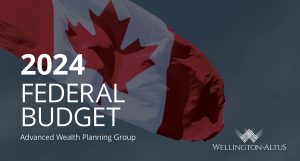Prepare your income tax return or go to the dentist. Which would you rather endure?
It is hard to ignore the financial impact of income taxes. The question is, are Canadians aware of the various federal, provincial or territorial personal tax credits, deductions, and government benefits that they are entitled to?
Whether Canadians work with an income tax advisor or purchase tax preparation programs, it is still worthwhile to review your:
- Personal Tax Return Jacket (first four pages);
- Schedule 1 of your Federal Tax Return; and
- Provincial/Territorial Tax Credit schedule.
A quick review of these forms may trigger further investigation why a particular line item is not reported or reflects your personal situation.
4 income tax questions to contemplate
1. What is your marginal tax rate?
Canadian individual taxpayers are assessed income tax using the marginal tax rate (MTR) method. Simply put, the MTR is the tax rate applied on an additional $1 of income reported; it is the incremental tax paid on incremental income (i.e. taxpayers are not taxed a flat rate).
Federal Tax Rates on Regular Income for 2020
| 15% on the first $48,535 of taxable income, plus 20.5% on the next $48,534 of taxable income (on the portion of taxable income over 48,535 up to $97,069), plus 26% on the next $53,404 of taxable income (on the portion of taxable income over $97,069 up to $150,473), plus 29% on the next $63,895 of taxable income (on the portion of taxable income over 150,473 up to $214,368), plus 33% of taxable income over $214,368 |
Assume you make $100,000: At the federal level you would be assessed 15% tax on the first $48,535, 20.5% on the next $48,534, and 26% on the last $2,931. Therefore, your MTR (tax rate paid on next dollar of income) would be 26%.
In addition, the types of income, notably: Canadian Dividends, Capital Gains and Regular Income (for example: Interest, Employment, and Pension) are distinguished.
Three instances when Canadians should consider their MTR are:
- RRSP contributions: Your marginal tax rate at the time of contribution should be higher than your anticipated marginal tax rate at the time of withdrawal in retirement.
- Lower than usual income: If your income is on the lower end of a tax bracket, or you anticipate you will be in a higher tax bracket in future years, you may want to generate additional income in the current year to avoid paying a higher tax rate on the income in the future. This may be relevant in the case of parental leave or temporary unemployment.
- Matching capital losses to capital gains: Realizing capital losses in December that will be netted against capital gains realized earlier in the year to reduce your overall income reported.
2. Can income be split with your spouse? Your children?
As with all things income tax, yes, but it depends… Given Canada’s MTR system for individual taxpayers, a Canadian family will be pay more in income tax if one spouse earns $100,000 as opposed to two spouses each earning $50,000. Income splitting is a tax planning strategy whereby earned income or investment income is shifted from a family member in a higher tax bracket to a family member in a lower tax bracket resulting in overall lower household taxes.
There are a number of income-splitting planning strategies Canadian families can employ but they should be careful to not trigger the various Attribution Rules that are reflected in Canada’s Income Tax Act. Attribution Rules are in place to prevent simply gifting or loaning assets at an unreasonably low interest rate from a higher marginal tax rate taxpayer to a lower marginal tax taxpayer such that income generated on those assets is taxed at a lower MTR.
Generally accepted income splitting planning ideas that do not trigger the Attribution Rules include:
- A prescribed rate (currently 1%) loan to a spouse or family trust
- Payment of household expenses by higher income earning spouse, allowing the lower income earning spouse to invest
- Gifting money to family members for TFSA contributions
- Contributing to a spousal RRSP
- Splitting eligible pension income and CPP retirement benefits with spouse.
3. You just received an instalment notice reminder for the first time. Do you have to pay?
No, you do not have to pay, but again with all things income tax, perhaps you should.
If in the prior tax year, you had to pay more than $3,000 (Quebec resident – $1,800) in income taxes upon filing your personal tax return, you will likely receive an instalment notice the following year.
Instalments are calculated if no, or insufficient tax was withheld at source on income reported. Such sources of income can include, but are not limited to, rental, investment, self-employment or foreign pension payments.
Canadians should consider if significant income reported was a one-time event, income is anticipated to be lower in the current year, or if income reported on a regular basis does not have sufficient income tax withheld. Canadians should reach out to their tax advisor or draft an income tax return to calculate their anticipated tax liability when assessing whether to remit all or a portion of the recommended instalment.
If you do not remit the recommended instalments, and in the current year your final tax liability again exceeds $3,000 you may be assessed interest and penalty charges.
4. My total income is $8,500. Do I have to prepare a personal income tax return?
Given the income reported is under the federal, and various provincial and territorial personal tax amounts you do not have to prepare an income tax return.
While this list is not exhaustive, you should file a personal tax return if you:
- Are entitled to receive federal or the various provincial/territorial benefits in the year (GST, CCB, GIS) which are income tested
- Have earned income during the year and want to generate RRSP contribution room
- Want to transfer certain personal tax credits to a family member or spouse
- Have an income tax liability for the year
- Have an income tax refund they want to claim
- Disposed of capital property, such as a principal residence during the year
Please reach out to your income tax or Wellington-Altus Private Wealth advisor to discuss these income tax topics further.
Wellington-Altus believes in the importance of financial literacy and embracing the role we play in supporting our clients and Canadians in this endeavour. That’s why this month, in honour of the 10th Anniversary of Financial Literacy Month, our AWPG is featuring a Q&A with WA. We’ll be sharing simple, impactful financial planning information sourced from our very own team of advisors and wealth planners on LinkedIn.
Stay tuned to our LinkedIn page as we share content to support #FLM2020 and addresses areas of financial planning.
Find an advisor at https://bit.ly/34O0Pok.



